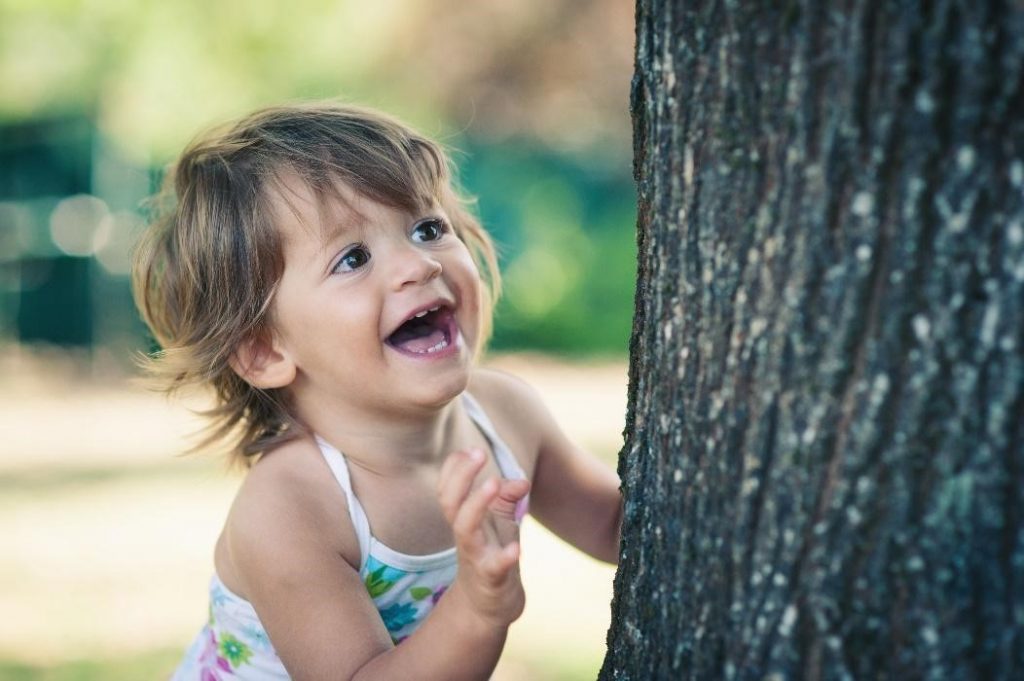Spending time outside is an important part of a healthy and well-rounded childhood
Playing outside is a timeless childhood tradition. To a child, playing in the sunshine represents freedom and unrestrained fun, and people from every generation have fond memories of running, climbing, exploring, and imagining in the great outdoors.
Playing outside is more than just fun – it’s an essential component of early childhood growth. Time spent outdoors encourages health and wellness through physical activity, independence, creativity, problem-solving, and social development.
Expand your environment
What a normal childhood looks like changes over time; sometimes for better and for worse. One defining aspect of the modern child’s life that is different from previous generations is the time spent inside; from concerns about safety to the quiet pull of electronic devices, children and their families tend to spend less time engaged in recreational activities outside.
As a caregiver, you can help children develop more experience and exposure to the joys of outdoor play by incorporating it into your daily routine. There are many benefits to giving children space, time, freedom, and encouragement to play outside, such as:
- Exercise: The most obvious, and perhaps most important, the benefit of outdoor play is the physical activity it inspires. Active play helps burn off energy, develop motor skills, and build muscle. Whether you have access to a full set of climbing equipment or simple materials such as a ball to chase after, running around outside is the best form of exercise for young children – and helps lead to a quieter nap time later.
- Sunshine: Although there are a lot of valid concerns about sun exposure, human beings need sunlight in healthy doses. Spending time in the sun helps our bodies make vitamin D, which plays a role in bone development and helps the immune system, among other things. Spending time in the sun can also help contribute to improved sleep patterns. Use sunscreen and keep a close eye on the clock so that you don’t spend too much time outside when the sun is at its most direct.
- Risk-taking: When our main priority is keeping children safe, it can be difficult to allow them to take risks. Playing outside with supervision encourages risk-taking in a supported way. Running, jumping, climbing, catching a ball, approaching a potential playmate – these are all examples of risk-taking that are important to our overall growth. Allow the children in your care to take risks that are appropriate for their age range and ability.
- Nature appreciation: The environment is inspiring, and raising children who are good stewards of the earth is essential for the future of society. Nature is also a great place for observation and imagination; from bugs to cloud watching, there are so many wonders to discover and enjoy. Point out how exciting nature is, and make connections between the outside environment and scientific concepts, art, or stories that children can appreciate or take interest in.
- Social development: Playing outside offers an open-play environment that allows children to initiate play with their peers, lead games or activities, find ways to entertain themselves and learn to share or collaborate. The playground is like a natural social laboratory that permits children to experiment.
Helping children lead healthy lives where they appreciate the people and environment around them and have the self-confidence to take appropriate risks is at the core of providing a quality caregiving environment. Nurture the children in your care by spending more time with them out in nature.
The Virginia Infant & Toddler Specialist Network helps improve the quality of care for infants and toddlers through extensive resources, services, and education for caregivers. Learn more about how we can help you improve the standard of care.




